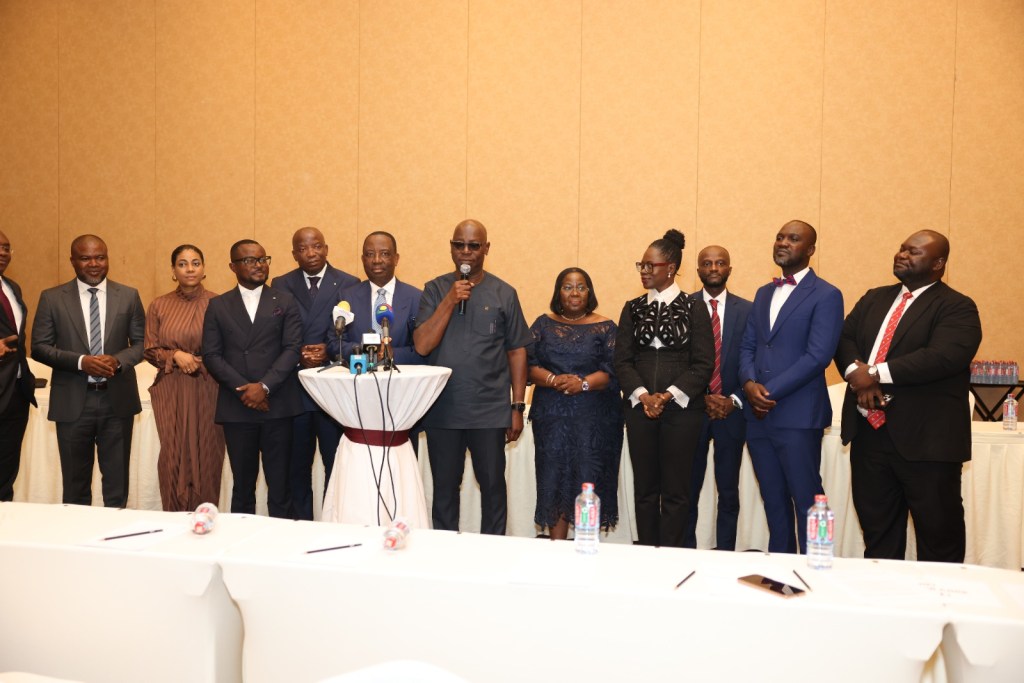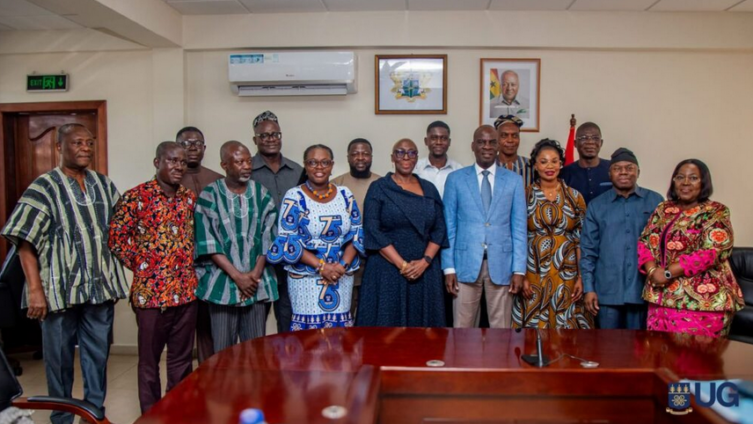
The deepening trade tensions across the globe, symbolized by escalating tariff wars and rising protectionism, should serve as a stark wake-up call for Africa.As countries turn inward and nationalism resurfaces with renewed force, the illusion of a borderless global economy is fast unraveling.
In this fractured global order, Africa must recognize the urgent need to secure its technological sovereignty—not tomorrow, but now.
At the launch of the 2025 CEO Summit in Accra, Moses Kwesi Baiden Jnr., Chief Executive Officer (CEO) and Founder of Margins ID Group, sounded a clarion call to business leaders, policymakers, and entrepreneurs: Africa must build and own its technology.
Speaking under the summit’s theme, “Leading Ghana’s Economic Reset: Transforming Business and Governance for a Sustainable Futuristic Economy,” Baiden urged the private sector to take the reins of innovation and lead Africa’s journey into the digital age on its own terms.
Mr Baiden’s message was clear: Africa must not remain on the periphery of global transformation.It must build its own digital destiny—an Africa where data is sovereign, systems are secure, and innovation is homegrown. The time for building is now.
Because in the world that’s coming, you either build—or you are built.
The risks of technological dependence
According to Mr Baiden, recent disruptions in access to cloud-based tools, intellectual platforms, and digital storage systems have laid bare a glaring vulnerability.Many of the digital platforms African firms depend on are controlled by foreign entities with their own geopolitical and commercial interests.
As global tensions escalate, so too does the risk of sudden and arbitrary disconnections—from tools essential for daily operations to entire troves of intellectual capital.”Imagine a future where your corporate memory, your data, your identity can disappear overnight—not due to your failure, but because of decisions made halfway across the world,” Baiden warned. This scenario, once far-fetched, now feels dangerously plausible.

This growing dependence on foreign technology—whether in cloud services, social platforms, or financial technologies—presents an existential threat to the continent’s future.
Mr Baiden cautioned that without decisive action, Africa could become a digital colony, dependent on systems it does not control, bound by rules it did not write, and vulnerable to disruptions it cannot predict or prevent.
Participate or perish
We are in the throes of the Fourth Industrial Revolution, a seismic shift driven by artificial intelligence, automation, data analytics, and digital connectivity.
While many nations are racing to harness these changes for competitive advantage, Africa risks being left behind—or worse, being defined by others within this new global order.
Mr Baiden, emphasized that Africa must engage deliberately and boldly with these forces.“The future belongs to those who create it,” he declared. “Let us not wait to be invited to the table. Let us set the table. Let us shape the future,” he added.
This means designing systems that are transparent, ethical, accountable, and anchored in the values of governance, productivity, and inclusion, he stressed.
The Margins ID Group CEO, pointed out that it requires the private sector to lead—not just with capital, but with courage and vision. And it demands that African institutions foster the kind of homegrown innovation capable of scaling and competing globally.
Reimagining the role of business and governance
The challenge before Africa is not just technological—it is also institutional.
To build and own its technology, the continent must recalibrate how it governs, how it educates, and how it partners across the public and private divide.
Mr Baiden, called on CEOs and business leaders to become a force for good, not just by pressuring governments, but by pushing themselves to reimagine production systems, reform governance frameworks, and champion long-term, values-driven transformation.
“The future demands governance, compliance, transparency, and effectiveness. These values must be embedded in the DNA of both public and private institutions if Africa is to rise in the digital era,” he said.
The Strategic Imperative for Sovereignty
Sovereignty in the 21st century will not be defined merely by borders or resources, but by code, data, algorithms, and systems.
Digital sovereignty is not just about independence—it is about self-determination. It is about ensuring that African voices are not only present but central in shaping the systems that define global productivity and innovation.
Mr Baiden, urged African governments to take seriously the design of national platforms and infrastructures that protect citizen data, encourage innovation, and allow local entrepreneurs to flourish. But he was unequivocal that the private sector cannot afford to be passive.
“This network of CEOs must lead with intention. We cannot be spectators in a future designed by others. If we do not act now, we risk becoming casualties of it,” he warned.
Africa’s future must be built, not imported
As nations retreat behind trade walls and realign their priorities, Africa must resist the temptation to wait for handouts or policy shifts from global power centers.
The continent’s future will be determined by the institutions it builds, the talent it nurtures, and the technologies it owns.
The post Africa must build; own its technology to secure its future – Margins ID GROUP CEO appeared first on The Herald ghana.



